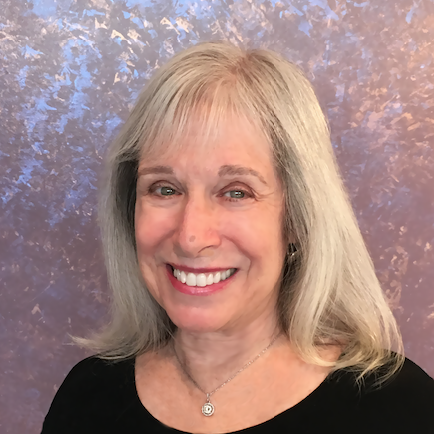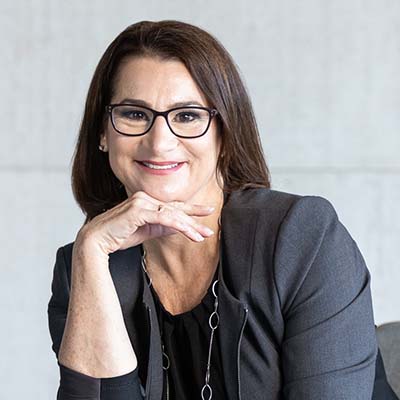Six Reasons to Join a Caregivers Support Group
I am a huge proponent of support groups because I’ve learned so much and received comfort by attending them during crises in my life. For many years I was also a family caregivers support group leader for my local Alzheimer’s Association chapter, and my life was enriched by listening to the people who attended my groups.
My first support group experience was in 1996 when I became a member of a breast Cancer survivors’ support group. Shortly after I was diagnosed with breast cancer, I started going to meetings, asking questions, and listening carefully to the survivors there. They gave me knowledge, different perspectives, and lots of hope. The experiences these women shared were very valuable, and helped me make decisions about what treatment options were best for me.
The next support group I attended was with my father in 2001 and it was for spouses of Alzheimer’s disease patients. We went together because I thought he’d benefit from it and he wouldn’t go alone. But, like many men of his generation, he didn’t care for the experience, and unfortunately we stopped going after several meetings.
I still felt I could use a support group as my mom’s disease progressed, so I found one specifically geared to adult children of Alzheimer’s disease patients. After attending for several years, the leader asked me to become her co-leader and then I became sole leader when she needed to step away.
Six Benefits to Joining a Caregivers Support Group
- Education: Whatever the support group topic is, the leader (sometimes called the facilitator) will be knowledgeable about it. They should also be ready, willing and able to research questions they might not have the answers for immediately and get back to you after the meeting via phone or email. Alternatively, they can report what they’ve learned to the whole group at the next meeting. The other members will share their own Caregiving experiences and knowledge, too.
- Empathy: This is one of the best reasons to attend a caregiving support group. It’s very common when facing any problem or obstacle to feel that we’re alone or that no one understands what we’re going through. Wrong! And a support group illustrates this in spades. All of the members, and often the leader, are in the midst of caregiving. You can let it all out with people going through something similar to what you’re experiencing. They truly understand your ups and downs.
- Brainstorming: A good support group leader encourages members to help each other, and brainstorming is a great way to do this. When someone mentions a challenge they are facing, it’s beneficial to get tips, strategies and new ideas on how the others have dealt with whatever you’re having a hard time with. For example, at one meeting we used role playing to help members prepare in advance for difficult talks they planned to have with their care recipients.
- Resources: Often a support group leader and its members will be familiar with, and recommend, community resources that can assist you in multiple ways. One person can’t possibly know all of the local caregiving service providers out there — and more are starting up every day. It’s also good to hear other people’s feedback on services they’ve used, both pros and cons.
- Friendships: I’ve seen support group members connect during meetings, and then exchange phone numbers to keep in touch between meetings. Members who live in close proximity may start carpooling to meetings and/or going out for coffee or a meal afterwards to continue the discussion . . . or just to have some fun! Some caregivers in my support group started a respite cooperative between them. They took turns watching the other person’s care recipient so the member gets a break or can run some errands, etc. It’s like a babysitting cooperative, but for caregivers. Making long-lasting friendships was an added and unexpected bonus I received when I joined my first support group back in 1996. Priceless!
- Paying it forward: Many times people continue to attend a support group even after their issue/health concern/stage of life is over or resolved. “Veterans” have lots of good information and life experiences to share with newcomers in any support group. As a leader, I valued the commitment by them to help and share with others, as other veterans had done for them. I’ve seen widows, widowers and adult children come to caregiver support group meetings after their loved ones have passed away to share that very difficult stage of caregiving with the group, and receive lots of caring and support in return. It helped provide some closure to them, and to us.
Finding and Selecting a Support Group
There are support groups that exist for nearly every challenge people face. You can ask your doctors or clergy for local recommendations. Or, you can also use Google to search for ” _____________ support groups near me.” Insert into the blank the disease your loved one has or the word “caregiver.” If you don’t feel ready to go alone, bring an understanding friend or family member along.
It is smart to “shop” for a support group that you feel comfortable with, from the physical setting, to the demographic of the membership, to the leader’s style as well as the meeting format. I’ve been in rooms that felt cold and were not a good fit for me. I’ve been to groups that were OK, but not great. There is a support group that is right for you, so keep trying different groups until you find it.
Give a support group meeting more than one chance. I would attend at least two meetings before I crossed a potential group off my list. You want to be sure your first impression was valid, even if it wasn’t necessarily a positive one. What’s an extra hour of your life when it could lead to a great long-term experience if given another chance? Some find they enjoy going to multiple support groups regularly because each one offers something different — which is another valid strategy.
Don’t feel you have to go to every meeting to gain value from the group. My attendance at the adult children of Alzheimer’s disease patients support group went in waves. There were months I couldn’t wait to go, but then my mom’s cognitive decline would reach a certain level and she was at a plateau. I wouldn’t attend a meeting for a month or two because I didn’t feel I had any pressing questions or issues. I returned again when the need arose.
Support Groups Online vs. In Real Life?
I’ve been involved in different online communities and online forums since 2006. And the pandemic made us all comfortable using Zoom. While getting to “know” people from all over the world online is certainly fun and gratifying, I’ve learned the best part of connecting is meeting these people in person. There is still something about face-to-face communication that has online interactions beat by a mile. This goes for support groups, too.
Plus, you can’t hug someone online, and hugs are an aspect of many support groups. (Optional, not required.) As caregivers, we can usually use some hugs.
For that reason and those above, I hope you’ll find and attend a caregivers support group meeting in the near future.
Photo Credit: Dee-lite’s photostream


























